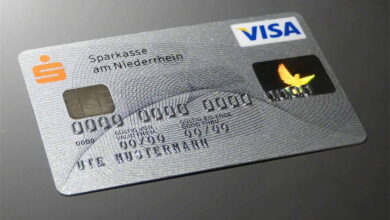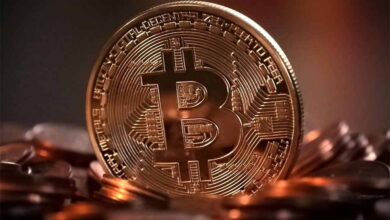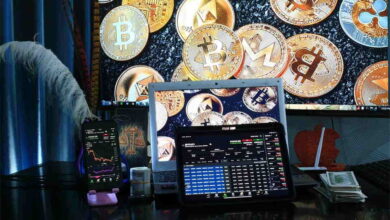In What Currency Should You Store Your Financial Cushion?

States, businessmen and organizations create reserves to maintain stability during difficult economic periods. According to a similar scheme, some people and families accumulate an untouchable financial cushion for a certain period.
Without a reserve of funds, it is very difficult to avoid the risks of lack of money, survive the crisis and maintain calm. In this article you will learn about which currency is best to use to form a financial cushion.
We also recommend using the Rates.fm service to track currency exchange rates in Ukrainian institutions, which can significantly improve the prospects of your financial cushion.
What Is a Financial Cushion?
A financial cushion is the savings of an individual or family that can be used as quickly as possible. But these are not necessarily banknotes. The main thing is that the reserve contains the most liquid assets that can be quickly converted into cash. They can be withdrawn, exchanged, converted, or resold.
The peculiarity of a financial cushion is that it cannot be simply spent on everyday expenses or desires. The reserve is formed only for emergency purposes. Such a financial buffer helps to get through difficult periods of lack of money with minimal losses for each family member or individual.
People create a financial reserve from their own profits. Savings are collected by families or individuals who understand the significance of the final goal. Financial cushions are formed not only by households, but also by countries, businesses, and entrepreneurs. Reserves are needed for periods of financial instability, crisis, or force majeure.
Having a financial cushion instills peace of mind in difficult periods of life and allows you to focus not on the emergency search for money, but on solving other problems.
In what form should it be stored?
There are several ways to store a financial reserve:
- cash;
- on a debit card;
- on a bank deposit.
Cash
The most obvious advantage of cash is free access to such savings. But there are many more disadvantages:
- inflation, which gradually depreciates savings;
- the risk of spending money for other purposes;
- loss or theft.
If you keep your savings in a bank safe deposit box, you will have to pay for it. In addition, not all banks provide 24/7 access to safe deposit boxes. Therefore, when storing cash for emergencies, you should consider a home safe.
On a Debit Card
You can withdraw money from a Visa or Mastercard bank card even at night, the main thing is to find an ATM of your servicing bank or partner. To reduce the impact of inflation, it is better to choose a card with interest on the account balance. The main disadvantages of storing a financial cushion on a debit card:
- you will most likely have to pay for issuing the card and its maintenance;
- If you reside in the US, you’re likely to have less or not at all bonuses, compared to credit cards;
- Internet banking, SMS alerts, and other services may also be paid, but you can refuse most additional services and thus reduce costs;
- the bank can change the interest rate at any time.
On a Bank Deposit
When choosing a bank deposit program, you need to select deposits that allow partial early withdrawal with minimal losses of accumulated interest. The main advantages of keeping a family reserve on a bank deposit:
- interest on the deposit reduces the impact of inflation;
- the money will not be stolen and it will not be lost;
- the interest rate remains unchanged for the entire term of the deposit.
Cons:
- it is difficult to calculate how much money may be needed urgently; if you have to withdraw the entire deposit, the accumulated interest will be minimal;
- the opening hours of bank branches may be inconvenient; not all banks allow deposits to be processed remotely or on weekends, which reduces the mobility of deposits.
In addition, taking out an Aetna insurance policy can be an excellent solution for creating a kind of financial cushion.
In What Currency Should You Store Your Financial Cushion?
If the financial cushion is already impressive, then it is advisable to store part of the amount in different currencies. Typically, for this purpose, people use a package of freely convertible most common currencies – American dollars, and euros. And sometimes they add the most stable currencies in the world – Swiss francs, Japanese yen, Norwegian and Swedish kroner.
Why Financial Reserves Should not Be Stored in Securities
It is undesirable to place all funds from the financial cushion into investment instruments for three reasons:
- If money is invested in securities or other financial assets for a certain period, it may be very difficult to withdraw it on demand. In addition, high-risk instruments can not only rise in price, but also fall in price, and this is a very bad strategy for a financial cushion. That is, at the end of the investment the investor will have less money than at the beginning.
- If you urgently sell securities such as shares or ETFs, they may cost less than at the time of purchase, and there will be no time to wait for the price to rise. In this case, the reserve will go to a loss.
- A separate argument is that exchanges do not work on weekends or at night, so you won’t be able to get money very quickly. Plus, transactions with securities take place with a delay of 2-3 days, which must also be taken into account when withdrawing funds.
But all these disadvantages are relative. If you draw up a strategy correctly, then part of the family reserve can be placed without compromising the amount of savings.
Wrapping It Up
A financial cushion is created not to increase money, but to solve temporary financial difficulties. For example, in case of dismissal, illness, sudden life circumstances of a personal or general nature – natural disaster, quarantine, emergency.



